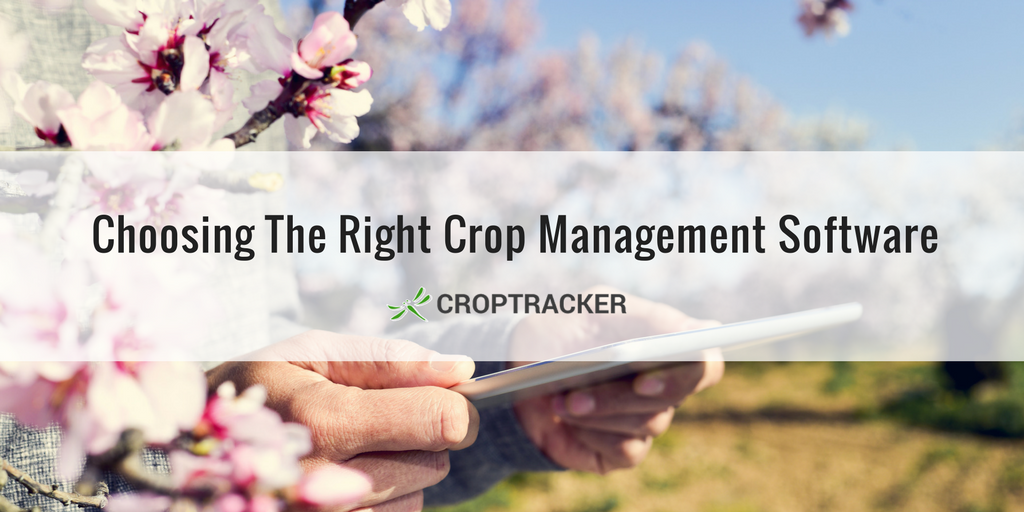If you're reading this, you're probably already aware of all the benefits a quality crop management software system can bring to your farm. Now, how do you choose the best platform for you and your operation? In today’s blog post we’re going to look at several important factors to look out for while making your decision.
Comprehensiveness
It’s important to find a single system that offers support for every crop variety you produce. Having some crops recorded and tracked in an app and others on paper, or having to switch between different platforms for different crops, opens you and third-parties up to confusion and error (that's why Croptracker currently has support for 2249 varieties of fruits and vegetables).
You also need a software that supports all your production activities. From planting, to spraying, to harvesting, to packing and shipping, you need a software platform that can help you record, plan, and keep track of it all.
Cost
Of course, cost is a huge factor in your decision-making. Does the software fall within your budget? Does the development team offer different tiers of pricing so that you’re not paying for services your farm doesn’t need?
Mobile App Support
Look for a software platform that offers a mobile app as well as a desktop version. By letting users update and access their records and reports from anywhere, mobile apps protect against forgotten or duplicated entries, enable fast decision-making, and let growers devote more time to being in their fields rather than being stuck in their offices.
Compatibility With Other Software
When selecting a platform, it’s wise to consider its compatibility with your existing software. By being able to link up your crop management software with other third-party platforms - like Croptracker's compatible programs Agricorp, Paylocity, IMS Payroll, and AccPac - you can augment both systems and maximize your return on both.
Security
Your data is precious and should belong solely to you. Make sure to pick a system that has a protective, proactive attitude towards your data as well as the infrastructure in place to keep it safe. A good rule of thumb is to only choose platforms that use SSL-encrypted connections by default - the same level of security used by online banks.
You should also ensure that regular backups of your data will be made. Use your own discretion when deciding what frequency is acceptable to you (at Croptracker, we make backups every hour).
Team
A software platform is only as good as the development and support teams behind it. When choosing a software, look for:
Comprehensive Software Training: Are you thrown in the deep end, or does the support team make it a priority to help you learn your new software? Do they offer personalized training sessions?
Hours of Support: Your farm doesn’t stick to a 9-5 schedule, so it doesn’t make sense for the software’s support desk to either. Pick a team who you’ll be able to get in touch with when it’s convenient for you.
Support Channels: Some conversations work better on different communication channels. Can you reach the support team in multiple different ways (eg. phone, e-mail, instant chat, social media)?
Customization-Friendly: No two farms are the same, and it’s important to find a development team that understand this. Make sure the team you choose is able and willing to tweak your software so that it best fits the unique, dynamic needs of your farm. This can mean adding new crop varieties, or adding whole new features altogether.
Choosing a crop management software is no small task. We hope this list has helped you in narrowing down your choices! We work hard to make sure Croptracker fulfills all our expectations for what makes a good crop management software system a truly great one - from breadth of features, to comprehensive support, to unbeatable security, to mass customizability. Please contact us to learn more and to get a free, personalized demo. We're excited to help you grow more efficiently, safely, and profitably!
| Missed Last Week's Blog Post? Feeding Tomorrow: Consumer Trends Set to Shape the Horticulture Industry |


